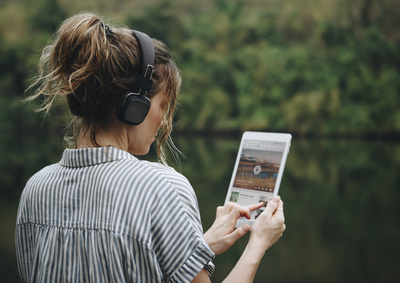
Can An App Help With Recovery?
To begin with, it helps to see the app in action. Watch the explainer video from Chess Health, the developer, about Connections and what it’s meant to do:
The app itself includes groups assigned by a mental health professional due to shared traits, such as treatment approach; a private and secure one-on-one messaging system to contact peers and providers; a motivational board and resources to learn about and live with substance use disorders; and tools to track appointments, goals, medications, and to check in.
Connections’ functions is the result of years of research and is based on solid evidence that online support groups and personal therapy sessions can assist with substance abuse recovery. At its root, the basic idea is to bring modern messaging capabilities, like texting and group chats, into the recovery space so patients can make use of them and develop the communities they need for support.
 Why an App?
Why an App?
There are other advantages to an substance abuse recovery app, as well. Here are a few:
- Cognitive behavioral therapy built in. Connections includes computer-based CBT, which shows positive results when paired with in-person treatment such as group therapy.
- Increased privacy. The app allows for better privacy than in-person sessions.
- Eliminates need to travel. Some individuals see traveling to sessions as a barrier to treatment.
- Remote tracking. Connections can remotely track participation, ensuring user accountability.
In addition, the app puts a “therapist in your pocket.” While the ideal situation with the best outcomes is that the app is used in concert with traditional approaches, research has found computer-based CBT to be effective on its own. This makes the app a good choice for individuals in remote areas or who have unusual work schedules or high demands on their time. It also means patients can rely less on a “strong will” but have a resource at hand in tough moments.
Connections has also been a boon to many during the COVID-19 pandemic when mental health resources are in short supply. For example, the West Virginia Office of Drug Control Policy has made the app free of charge to help patients maintain crucial contact with their support networks.
A New Tool for Recovery
Chess Health reports a 31% reduction in relapses, a 50% reduction in the severity of the remaining relapses, and a 20% higher chance of completing a recovery program using Connections.
That said, like any tool, the app is only effective when it’s used. And Chess makes it clear that the best situation for any patient is to use the app as one part of a broader toolkit to deal with addiction. Connections was designed to help fill gaps in care, when someone can’t get to a provider or find a group, for example, and to help people stay on track and remember why they want to keep on with their journey to recovery.
If you’d like to know more about recovery and sobriety apps, there are several to consider. Adding an app to the recovery program helps give those in recovery what they need to succeed. And to learn more about in-person care, call us to learn about admissions.


 Why an App?
Why an App?





